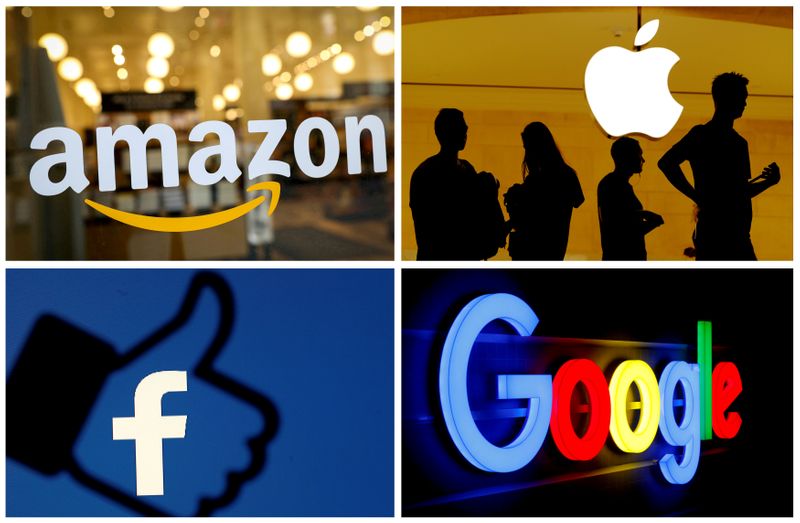By Foo Yun Chee
BRUSSELS (Reuters) - U.S. technology firms including Amazon (NASDAQ:AMZN), Apple (NASDAQ:AAPL), Facebook (NASDAQ:FB), and Google face fines of up to 10% of their annual turnover and could even be forced to break up under draft European Union rules announced on Tuesday aimed at curbing their powers.
The rules are the most serious attempt by the 27-country bloc to tame tech companies that control troves of data and online platforms relied on by thousands of companies and millions of Europeans for their work and social interactions.
They also mark the European Commission's frustration with its antitrust cases against the tech giants, notably Alphabet (NASDAQ:GOOGL)'s Google, which critics say did not address the problem.
Regulatory scrutiny has been growing worldwide of tech giants and their power following a string of scandals over privacy and misinformation.
Both European Competition Commissioner Margrethe Vestager and EU Internal Market Commissioner Thierry Breton also see the rules as a bid to prevent the emergence of anti-competitive dominant companies.
One set of rules, the Digital Markets Act, calls for fines up to 10% of annual global turnover for so-called online gatekeepers that don't comply with the new rules as well as a break-up order as a last resort.
It also sets out a list of dos and don'ts for gatekeepers, defined as companies with an entrenched position, a significant impact on the EU market and with a core platform service which is an important gateway to users.
They will also be required to report merger bids to the authorities, a move aimed at preventing acquisitions that kill off rival companies.
The second set of rules, the Digital Services Act, also targets very large online platforms, such as those with more than 45 million users.
They will be required to do more to tackle illegal content, misuses of their platforms that infringe fundamental rights and intentional manipulation of platforms to influence elections and public health, among other requirements.
The companies will also have to show details of political advertising on their platforms and the parameters used by their algorithms to suggest and rank information.
The draft rules need to be approved by EU countries and EU lawmakers, some of which have pushed for tougher laws, while others are concerned about regulatory over-reach and the impact on innovation.
Tech companies, which have called for proportionate and balanced laws, are expected to take advantage of this split to lobby for weaker rules, with the final draft expected in the coming months or even years.
Differences between the tech giants could dilute the opposition. Facebook for one has urged the EU to rein in Apple.

"We hope the DMA will also set boundaries for Apple. Apple controls an entire ecosystem from device to app store and apps, and uses this power to harm developers and consumers, as well as large platforms like Facebook," the U.S. social network said in a statement.